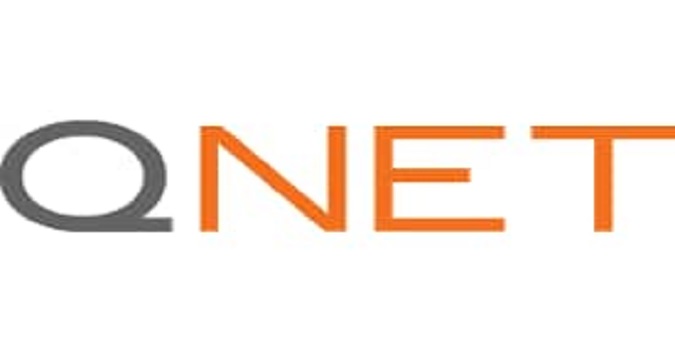Broadcasting
NDLEA Arrests Lagos Airport Cleaner who Leads Drug Syndicate

Operatives of the National Drug Law Enforcement Agency, NDLEA, have arrested a cleaner at the Murtala Muhammed International Airport, MMIA, Ikeja Lagos, Ohiagu Sunday, who leads a drug syndicate at the international wing of the airport.

This is contained in a statement signed by Femi Babafemi, director, Media & Advocacy and made available to Nigeria CommunicationsWeek.
According to the statement, he was nabbed on Tuesday 23rd August following the arrest of an intending passenger on Airpeace flight to Dubai, UAE, Obinna Jacob Osita who was arrested with three bags, two of which contained eight blocks of cannabis sativa weighing 4.25kg concealed in cassava product, garri and crayfish.
One other member of the airport syndicate who works with Ohiagu has also been arrested while operatives are after another suspect.
Investigations revealed that a Dubai-based drug dealer recruited Obinna, a 42-year-old native of Oyi Local Government Area, Anambra State to traffic the drugs and equally contracted Ohiagu, a 34-year-old airport cleaner from Orlu West Local Government Area of Imo State to create access for the unhindered passage of the trafficker.
The drug syndicate bust, which is the first drug arrest at the new terminal of the MMIA comes on the heels of the seizure of a consignment of bottles of viju and fearless energy drinks used to conceal skunk for export to Dubai, UAE through the NAHCO export shed on Monday 15th Aug. A freight agent has already been arrested in connection with the seizure.
In the same vein, attempt by a syndicate to export illicit drugs through the Lagos airport on Wednesday 24th Aug was foiled during an outward clearance of passengers on Ethiopian Airline to Oman via Addis Ababa.
A suspect Jonah Chukwuemeka was arrested with a total of 1,995 Tramadol tablets with a gross weight of 900 grams hidden in locust beans in his luggage. The bag containing the illicit substance was handed over to him at the airport by one Olagunju Abbas who was promptly arrested.
Packs of Tramadol 225mg containing 119,500 capsules were Thursday 25th Aug transferred to NDLEA by the Nigeria Customs, cargo wing of MMIA. The consignment had come in through Ethiopian Airline from Pakistan.
Meanwhile, NDLEA operatives on Saturday raided a car shop, Bolak Motors at Ewela bus stop, Oshodi where bags of 615.2kg cannabis were recovered along with nine vehicles. Efforts are ongoing to track the car dealer, Alhaji Ismail who is currently at large.
No fewer than eight suspects were arrested and bags of illicit drugs seized from them when Akerele area of Agege, Shogunle and Mafoluku areas of Oshodi, Fagba area of Ogba, Ipodo area of Ikeja and Iyana Ipaja park were raided in the state.
In Yobe state, two suspected fake security agents taking 14kg cannabis to Maiduguri, Borno state were intercepted along Potiskum- Damaturu road. While Adetula Olarenwaju was arrested with four blocks of the substance on Thursday 25th Aug on his way from Lagos, Sadiq Garba returning from Gombe was nabbed with 22 blocks of the substance on Saturday 27th Aug.
In Edo, Abu Segun Sunday was arrested with 48.4kg cannabis at Idk quarter, Ibilo, while Rosemary Afekhuai was caught with 1,130 tramadol caps, among others at Oluma quarters, Otuo, Owan East LGA.
In Delta, Mustapha Isah, was arrested at Oko Market with 9, 800 Tramadol caps weighing 6.4kg while NDLEA operatives in Kaduna also nabbed Chinedu Onnuka, at Narayi Kaduna with 33,000 tablets of Bromazepam.
No fewer than 80 blocks of cannabis sativa were recovered from an abandoned tricycle with reg. no: BAU 70 WL while 25,000 tablets of exol-5 were seized from a dealer, Usman Muhammed who was nabbed along Bauchi-Gombe road.
A raid operation at a market in Mubi, Adamawa state on Wednesday 24th Aug led to the seizure of 62,360 tablets of tramadol, diazepam and exol-5 while two suspects, Sirajo Idris and Anas Abubakar were arrested same day with 107 pallets of cannabis at Kamba, a border town in Kebbi State. The skunk weighing 90kg was smuggled in from Benin Republic.
In Kano, a drug dealer Lawal Adamu, 31, was arrested along Zaria-Kano road, Kwanar Dangora, with 203 blocks of cannabis weighing 136kg, while another suspect, Taheer Abdullahi was nabbed on Friday 26th Aug. at Gadar Tamburawa, with 3000 ampules of tramadol injection.
A raid operation at Kara Masaka, back of Mararaba market and Zamani estate on Saturday 27th Aug. led to the arrest of 26 suspects, while 25.7kg cannabis, 4.5kg codeine and 300 tablets of rohypnol tablets were seized from the drug joints raided.
In Sokoto state, the village head of Ruga, Shagari LGA, Alhaji Umaru Mohammed (aka Danbala), a notorious drug dealer who was arrested on Monday 22nd Aug. will be facing charges any moment from now.
Before his recent arrest during which 436.381kg cannabis and 1kg diazepam were recovered from his house, an earlier raid on his home on July 20th 2022 had also led to the seizure of 11.5kg cannabis, 2.259kg exol5 and 500grams of diazepam.
Chairman/Chief Executive of NDLEA, Brig. Gen. Mohamed Buba Marwa (Retd) commended the officers and men of the MMIA, Kano, Kaduna, Yobe, Bauchi, Adamawa, Nasarawa, Edo, Delta and Lagos Commands for the arrests and seizures. He charged them and their compatriots across the country not to rest on their oars.
Broadcasting
AI and Cybersecurity: Balancing Innovation with Caution

By Aaron Bugal, Field CTO APJ, Sophos
Undoubtedly one of the most influential technologies in recent decades, the ascent of artificial intelligence has produced a mixture of reactions from individuals, organisations, and countries. Eyes widen as we explore its potential, concerns grow as it threatens jobs, and conversations take place at a global level on how it should be regulated. However, for cybersecurity professionals artificial intelligence presents a double-edged sword.

Aaron Bugal, Field CTO APJ, Sophos –
Although AI has shown the ability to enhance cybersecurity solutions with its pattern recognition, summarisation, and assistance capabilities, it also opens the door for threat actors to harness the technology in much more sinister ways. So, in a world where we are in a constant race to out-innovate cybercriminals, what impact will AI have, especially as it continues to evolve itself?
New technologies mean new threats
Cybercriminals have proven they shouldn’t be underestimated. They are continually updating their tactics, strategies, and tools to breach businesses, and AI only strengthens their arsenal. AI has commonly been used to help threat actors better imitate real people – altering voices, pictures, and messages to carry out convincing phishing attacks.
Beyond mimicking human behaviour, cybercriminals have begun to experiment with AI at a more technical level. Malicious GPTs have been advertised on cybercriminal marketplaces, with functions such as automated penetration testing or malicious malware development.
However, sharing a similar experience to legal industries and businesses, there is still some hesitance from cybercriminals when it comes to implementing the technology into operations, as threat actors are mainly exploring generative AI in the context of experimentation and proof-of-concepts.
This does not mean organisations should see this as a sign to slow down, as artificial intelligence will inevitably become a regular feature of cyber attacks. Instead, businesses should be evaluating if they are using the technology in a secure and optimal way within their cybersecurity set up.
AI adoption is not about being first, but being smart
Businesses of all sizes are examining how AI can be used, with Sophos finding 98 per cent of organisations are using it within their cybersecurity infrastructure in at least some capacity. Further to this, 65 per cent of organisations use cybersecurity solutions that include generative AI capabilities, and 73 per cent use solutions that include deep learning models.
While AI adoption in cybersecurity can bring many advantages, it also introduces a number of risks if approached incorrectly. Poorly implemented AI models can inadvertently introduce considerable cybersecurity risks of their own – if it isn’t provided with the right inputs, it cannot provide adequate outcomes. Organisations are alert to this risk, with the vast majority (89%) of cybersecurity professionals saying they are concerned about how potential flaws in cybersecurity tools’ generative AI capabilities will harm their organisation, with 43 per cent highlighting they are extremely concerned.
This alertness must also remain for AI that’s implemented in non-cybersecurity related tools, as emerging technologies pose threats in their infancy. Agentic AI for example has become highly topical recently, but will a technology that learns from humans be able to adequately defend itself from cyber threats? At its current level, AI should be approached with the intention that it can serve a single purpose and expecting an individual system or ‘AI agent’ to do everything with minimal human interference is risk inducing.
Therefore, an organisation’s artificial intelligence advances – both within cybersecurity infrastructure and its entire technology stack – must be done with guardrails up and thorough oversight.
Fighting fire with fire without getting burnt
In an ongoing race against cybercriminals, artificial intelligence will only become a multiplier to innovation that takes place on both sides. For businesses, avoiding the risks of AI within cybersecurity systems is possible when implementation is approached with care. This can be achieved through:
· Inquiring about vendor’s AI capabilities: AI requires transparency, and asking cybersecurity vendors about how their data is trained, what AI expertise their professionals have, and their roll out process for deploying AI capabilities will help paint a clearer picture of AI development best practices.
· Providing strict outlines to AI investment: AI investment cannot be rushed, so it is important to assess whether AI provides the best solution for current cybersecurity challenges, prioritise specific AI investments, and measure the impact of AI once it is implemented into cybersecurity infrastructure.
· Remain human first in AI adoption. Organisations should never take a set-and-forget approach to cybersecurity, and this is even more the case when AI is involved. Ultimately, cybersecurity is a human responsibility, and AI should be used as an accelerant to support cybersecurity professionals, not a replacement.
Artificial intelligence will become a mainstay within organisations for many years to come. This is no different for cybersecurity, however with such high stakes it is vital that AI is used correctly, or it will only work against its intended purpose – giving cybercriminals the leg up over organisations in this ongoing battle. It is not about implementing a range of AI capabilities to expand your cybersecurity infrastructure, but the right capabilities that address your cybersecurity needs.
Broadcasting
QNET Reaffirms Integrity: Dissociates from Mighty Infinity Millionaire Ltd in Nigeria

QNET, a global leader in direct selling focused on wellness and lifestyle products, firmly disassociates itself from any unlawful activities being conducted by unauthorized individuals or entities fraudulently using the QNET name to mislead and exploit members of the Nigerian public.

These concerns have resurfaced following the arrests of several suspects in Niger State and the Federal Capital Territory, Abuja.
QNET commends the Economic and Financial Crimes Commission (EFCC) for its actions in apprehending those responsible and is actively supporting the authorities to prevent further misuse of its brand.
QNET Says NO to Brand Misuse and Criminal Misrepresentation
QNET is a 27-year-old international direct selling company offering wellness and lifestyle products through a network of independent distributors.
These individuals are customers who have purchased QNET products and have chosen to build their own direct selling business using our platform. They operate independently and are not employees of QNET.
Unfortunately, certain third-party entities such as Mighty Infinity Millionaire Ltd, that have no affiliation to QNET, and operate without our oversight or recognition, have grossly misrepresented the QNET business model and acted in a manner that is in no way a representation of QNET business ethics or values.
We unequivocally state that such entities and individuals are not affiliated with or endorsed by QNET. QNET reiterates that Transblue Nigeria Limited remains our sole partner in Nigeria.
Operating Within Legal and Ethical Boundaries
In Nigeria, QNET operates strictly within the legal and regulatory frameworks through our official local partner, Transblue Nigeria Limited. We remain committed to ethical business practices and protecting both our brand and the public from exploitation. We urge members of the public to remain vigilant, verify the authenticity of individuals or entities claiming affiliation with QNET, and report any suspicious activity to the appropriate authorities.
Statement from QNET’s Regional Leadership & Legal Nigerian Partner
Responding to the fraudulent activities being perpetrated in QNET’s name, Biram Fall, Regional General Manager of QNET for Sub-Saharan Africa, states, “We are extremely disturbed by the way unscrupulous individuals have misused the QNET brand to deceive innocent Nigerians with false promises. At QNET, our values are rooted in honesty and empowering people to build better lives through genuine means. We remain committed to supporting law enforcement agencies in their efforts to bring these fraudsters to justice and encourage the public to verify any claims of affiliation with QNET before getting involved.”
To avoid further confusion, QNET wishes to emphasize the following:
● QNET does not operate or endorse any physical or online university under the name “Q-University” in Nigeria. QNET is part of a larger business conglomerate that operates the Quest International University in Malaysia, which does not have any overseas campus.
● QNET is not involved with online medical courses or academic institutions in Nigeria.
● QNET does not support or condone recruitment-driven models that promise employment, scholarships, or guaranteed returns unrelated to the legitimate sale or purchase of QNET products.
● QNET strongly condemns the unauthorized use of our intellectual property – including company logos, founder portraits, and promotional materials – by fraudulent actors aiming to mislead the public.
QNET’s Awareness Creation and Consumer Protection Efforts
Since entering the Nigerian market in 2022, QNET with the support of our local partner, Transblue Nigeria Limited, have prioritized financial literacy and consumer protection. In November 2023, we launched the Say NO! Awareness Campaign to educate the public about scams and promote responsible entrepreneurship. The campaign has reached thousands through multilingual billboards, radio messages, educational pamphlets, and online platforms. As part of this campaign, the Federal Ministry of Labour and Employment (FMLE) and the Lagos State Consumer Protection Agency (LASCOPA) were also engaged.
Cooperation with Law Enforcement
QNET expresses its full support and appreciation for the EFCC’s efforts to protect citizens and crack down on cyber and financial crimes. We are actively cooperating with the Commission in its investigations and are committed to further educating the public on the nature and values of QNET’s legitimate operations.
Public Advisory: How to Stay Safe
To protect yourself from scams falsely linked to QNET:
● Verify all QNET-related information at: www.qnet.net
● Report suspicious activity via email: network.integrity@qnet.net or WhatsApp: +233 256 630 005
● Learn how to identify scams at: www.saynocampaign.org
QNET remains fully committed to ethical business practices and transparency. We stand with Nigerian authorities in protecting citizens from fraud and will continue to cooperate fully to bring those misusing our brand to justice.
Broadcasting
Eedris Abdulkareem Teases New Protest Anthem following NBC Ban

Eedris Abdulkareem, veteran hip hop artiste, is showing no signs of backing down as he hints at releasing another protest song, shortly after his last track was banned by the National Broadcasting Commission (NBC).

Eedris Abdulkareem, veteran hip hop artiste
He recently again stirred the political waters as he hinted at the release of a new protest song, only weeks after his controversial track Tell Your Papa was banned by the National Broadcasting Commission.
The outspoken musician took to social media on Wednesday, April 16, 2025, to share an animated cover design with the words “3 Arms of Government,” suggesting the theme of his upcoming release.
Though the title remains undisclosed, the post was captioned simply with “Stay tuned,” fueling speculation that another hard-hitting social commentary is on the way.
Abdulkareem, known for his unapologetic political views, recently described the NBC’s decision to ban Tell Your Papa as hypocritical. Undeterred by censorship, he appears set to continue using music as a platform to criticize injustice and demand accountability.
The rapper also recently reaffirmed the relevance of his classic hit Jaga Jaga, stating that it would remain the country’s “second unofficial national anthem” until key issues like security, electricity, and governance are addressed.
With another protest song on the horizon, fans and critics alike are bracing for what may be Eedris Abdulkareem’s most direct political message yet.

 Telecom3 days ago
Telecom3 days agoMTN Appoints Egerton Idehen as Chief Broadband Officer

 Telecom3 days ago
Telecom3 days agoDigital Realty Expands ServiceFabric to Nigeria, Enhancing Global Interconnectivity

 General News3 days ago
General News3 days agoUBA Marks 75 Years of Excellence at 65th AGM

 Telecom3 days ago
Telecom3 days agoMTN Group Suffers Cyberattack

 Telecom3 days ago
Telecom3 days agoMTN Foundation Launches Skills Academy to Bridge Nigeria’s Digital Skills Gap

 Telecom3 days ago
Telecom3 days agoLegend Internet Plc Makes History as First Indigenous Telecom Firm on NGX
- Telecom3 days ago
Tribunal Upholds FCCPC’s $220m Fine against Meta, WhatsApp

 E-Financial3 days ago
E-Financial3 days agoWorld Bank Predicts Rise of Poverty in Nigeria Despite Economic Growth




























